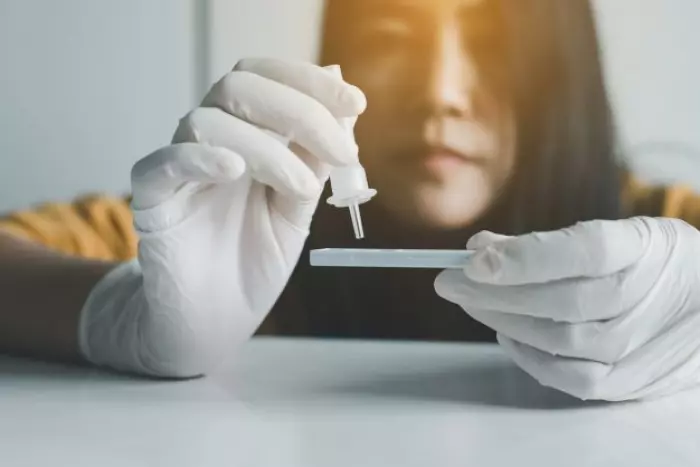The covid-19 wave has finally crashed on our shores and the director general of health has finally admitted errors have been made in the covid PCR testing programme. Our testing system is swamped with long delays and unprocessed swabs.
The collapse of public health contracted PCR testing in this country was entirely predictable but now is not the time for recriminations at this moment of the pandemic. That can wait for a royal commission.
We now need to stop making mistakes and start focusing on what is urgent and important.
RATs over-egged
Perhaps due to the absence of them, the widespread use of rapid antigen tests (RATs) has been presented as a potential saviour.
While they are being presented as the new “gold standard”, the evidence shows their use needs to be carefully limited or it will put the vulnerable at risk.
The best rapid antigen tests, like the Abbott Panbio test, are good for home use to confirm when you are feeling symptomatic, that yes, I do have covid-19.
They can also be used at the end of infection for return to work testing. Other health ministry-approved RAT brands have publicly published no useful sensitivity data at all and should be relied upon accordingly.
RATs work best when you are at peak viral load and symptomatic. Before peak viral load when you are infectious, they are highly inaccurate, which means they don’t break the chains of transmission.
A negative RAT result does not mean you can visit the elderly or a cousin with leukaemia, or a brother on dialysis. They used RATs to protect rest homes in Victoria and it ended in disaster. DON’T DO THAT.
Rako Science’s advice to the general public about using RATs is to only be confident of a positive RAT result and do not assume a negative RAT result will protect your family or vulnerable members of your whanau or community. That needs to be the public health advice. Anything else is irresponsible.
The omicron peak
In March we will face what Europe, the US and Australia have already gone through.
Yes, omicron is a less severe illness and the hospitalisation rate is much lower than the delta variant.
And, yes, New Zealand’s fantastic vaccination rate means there will be a significantly less severe illness.
But, overseas the data show omicron hospitalisation volumes (not rates) are about the same for alpha and delta surges. The reason is because omicron is so infectious that everyone gets crook in the same approximate time period.
Rako Science’s COVID-19 Modeller (closeassociate.com) currently has NZ’s R effective value at 4.6 which suggests in the next 14 days roughly a four-fold increase in daily cases to 80,000 plus cases per day.
In the last eight days, Rako has collected more than 20,000 saliva samples from a largely asymptomatic national population and the positivity rate is now well over 4% per day, which is very high.
The omicron peak is going to be high and then perhaps it will fall away quickly as it has overseas. There are only so many people to infect!
Late to act
It is almost too late now but we need to sandbag where the wave will do the most damage.
Our hospitals will be inundated in March and April and we need to protect hospital workers with the maximum amount of protection to keep them in the battle protecting the vulnerable.
They need frequent PCR saliva testing.
This approach, three times a week, has the best chance of early detection that identifies when they are positive before they become infectious.
It can’t be nasal PCR tests because they are less accurate and cannot be tolerated multiple times a week like PCR saliva tests.
In February, Rako Science protected dozens of private hospital healthcare teams by testing and identifying covid-infected patients before they were admitted for surgery or oncology treatment. All were asymptomatic. RATs would not have done the job.
For the same reasons, we need to protect our food supply chains with frequent, early detection PCR saliva testing and that means supermarket workers, truck drivers and distribution centre workers.
RATs will not do the job. We need to protect the most vulnerable and we need to focus on the most critical parts of our society and support and protect them in the next six weeks. Start with healthcare workers and the people that keep us fed.










